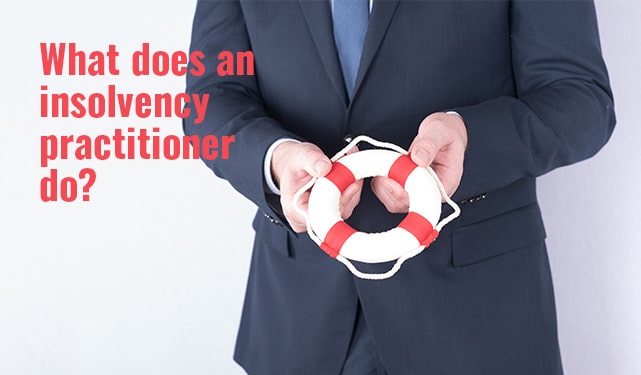The Basic Principles Of Insolvency Practitioner
The Basic Principles Of Insolvency Practitioner
Blog Article
Fascination About Insolvency Practitioner
Table of ContentsIndicators on Insolvency Practitioner You Should KnowSome Known Details About Insolvency Practitioner Unknown Facts About Insolvency PractitionerSome Known Details About Insolvency Practitioner Insolvency Practitioner Fundamentals Explained
Whether or not you require to utilize an insolvency practitioner (IP) to liquidate your firm relies on various factors. While involving an insolvency expert for all types of liquidation is not a legal need, doing so can typically streamline the procedure and guarantee conformity with legal needs. Liquidating a business is a vital choice that includes significant repercussions.
It is a treatment utilized when a firm does not have any type of financial institutions, or all of their financial institutions can be paid off completely with statutory rate of interest. Understanding the different kinds of insolvency procedures can aid you identify the ideal strategy for your firm's liquidation or various other formal insolvency treatments itself.
This is mandatory in order to abide by lawful requirements - Insolvency Practitioner. This is since IPs have the essential qualifications and experience to guarantee that the liquidation procedure is performed according to all appropriate regulations and laws. By engaging an accredited bankruptcy practitioner, you can have assurance understanding that your firm's liquidation process will be handled professionally and in compliance with the appropriate lawful needs
Insolvency Practitioner for Dummies
The bankruptcy specialist is designated as a liquidator and is accountable for managing the firm and liquidator's financial debts superior responsibilities and possessions. This process entails selling the business's assets and distributing the profits to lenders. Upon completion of the procedure, the firm is eliminated from the register at Companies Home.
Falling short to do so can result in individual obligation for the company or supervisor for the lender's debts. Volunteer liquidation, which includes Financial institutions' Volunteer Liquidation (CVL) and Members' Volunteer Liquidation (MVL), is initiated by the firm's directors and investors when they can no more pay their financial debts. In a CVL, the insolvency expert is assigned as the liquidator, responsible for handling company financial obligations and all company possessions.

Some Known Incorrect Statements About Insolvency Practitioner
By assessing the experience and experience of potential insolvency professionals, you can make certain that you select a professional that has the necessary qualifications to manage your business's liquidation procedure properly. While bankruptcy practitioner-led liquidation is frequently the most proper strategy for firms facing insolvency, there are alternative methods to think about, such as striking off and partial liquidation.
It's necessary to review all readily available alternatives prior to choosing the next ideal click here for more info remedy or strategy for your business. Striking off firms' registers is a much more simple and cost-efficient means to shut dormant or small companies without financial debts or properties. To strike off a business, its name is eliminated from the Companies House register by sending kind DS01.
Before choosing striking off, it's essential to weigh the benefits and downsides of this technique and think about whether it's the best choice for your organization. Partial liquidation is an additional option to insolvency practitioner-led liquidation, in which a business liquidates particular assets and obligations while remaining to run with the anchor staying assets and responsibilities.
A Bankruptcy Specialist will certainly be able to advise you of the ideal program of activity to take and guarantee that everything runs smoothly. It is not feasible to liquidate a firm without a liquidator. Designating an authorized bankruptcy practitioner is needed for the process of voluntary liquidation to start.
The Ultimate Guide To Insolvency Practitioner
It is possible to close and liquidate your business without utilizing a liquidator, provided your company is solvent and you satisfy the qualification needs to liquify or liquidate it. However, if your company is financially troubled, you might be called for to make use of a liquidator and begin formal insolvency procedures. Right here are some various other informative short articles relating to business liquidation in the UK:.
Remaining in a setting where you're not able to pay your business's lenders is very difficult. In an effort to prevent enhancing the degree of financial obligation, many companies attempt to work out directly with their lenders and accept an informal plan. If the financial obligation is quite small and owed to one creditor, and the financial institution is being participating, participating in an casual financial debt plan is probably the most effective solution, instead of looking the internet for 'an insolvency specialist near me'.
On the other hand, if there are several creditors and the level of financial obligation is huge, creditors might not be so willing or cooperative. In order to avoid liquidation or insolvency, it is far better to employ an insolvency specialist to prepare formal propositions and bargain with look at this now financial institutions in your place.
Things about Insolvency Practitioner
Whilst it is a way to handle financial obligation, there are considerable dangers included with this kind of debt arrangement - Insolvency Practitioner. If a financial institution wants to participate in a casual arrangement (IA) where the borrower has actually consented to make routine, if reduced, repayments to repay the financial obligation, it is very important to stay with the agreement

Consequently, the lender is within their civil liberties to back out of the arrangement and petition the courts for your business to be sold off at any kind of time. An official setup that has been suggested by a bankruptcy practitioner on your part, and agreed by a lender, supplies a much more secure alternative.
Report this page